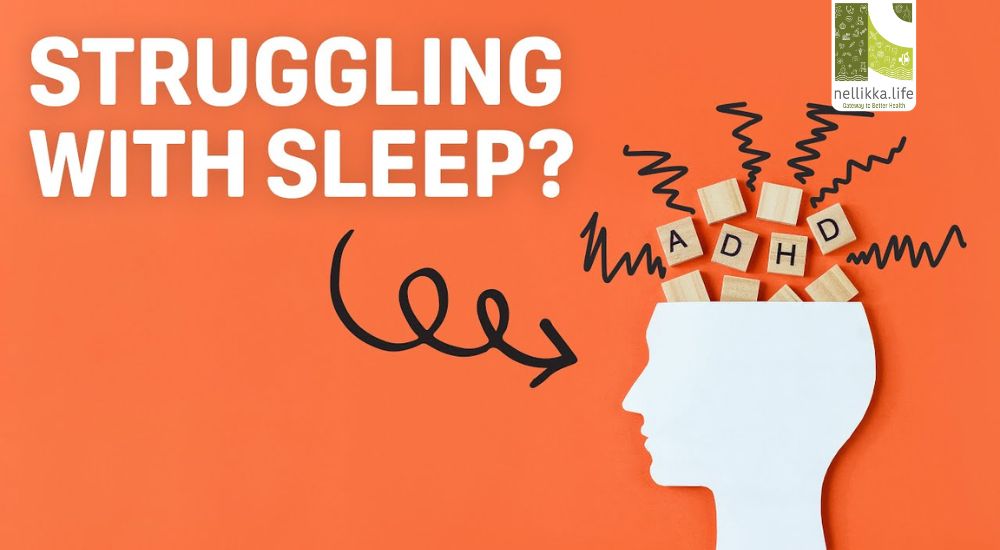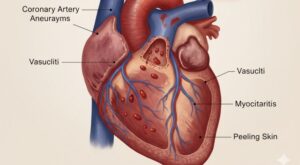Sleep & Sanity: How Poor Sleep Affects Mental Health More Than You Think

In our race to meet deadlines, scroll through reels, or squeeze in “one last episode,” sleep often becomes a luxury instead of a necessity. But what if we told you that the hours you skip in sleep may be silently costing you your mental stability, emotional strength, and long-term brain health?
Welcome to a conversation that goes beyond yawns and dark circles. At nellikka.life, we’re diving deep into the vital connection between sleep and mental health—and why it’s time we stopped sacrificing rest for productivity.
1. The Brain Needs Sleep Like Lungs Need Air
Sleep is not a passive state. It’s an active process of restoration, especially for the brain. During sleep, your brain:
- Clears out toxins and metabolic waste
- Consolidates memories
- Processes emotions and experiences
- Regulates hormones like cortisol (stress) and serotonin (mood)
A well-rested brain is better at regulating emotions, focusing, making decisions, and handling stress. A sleep-deprived brain? Not so much.
2. Poor Sleep and Mental Health: The Dangerous Loop
Lack of sleep doesn’t just make you tired—it changes how your brain functions. Multiple studies show a two-way relationship between sleep and mental health: Poor sleep can cause mental health issues, and mental health issues can worsen sleep.
Science Says:
- People with insomnia are 10× more likely to develop depression.
- Chronic sleep problems increase the risk of anxiety disorders by 17×.
- Sleep deprivation impairs the amygdala, the brain’s emotional control center, making you more reactive and less resilient.
Reference: Sleep and mental health
3. What Sleep Deprivation Looks Like in Real Life
You might think you’re managing fine on 4–5 hours of sleep, but your mind is taking a hit in subtle ways:
- Increased irritability and mood swings
- Struggles with focus and memory
- Feeling emotionally numb or overwhelmed
- Overthinking or intrusive thoughts
- Reduced creativity and problem-solving ability
- Risk of burnout, especially in caregivers, students, and professionals
4. Sleep Disorders and Mental Health Conditions
Insomnia:
Often linked to depression, anxiety, and PTSD. May start as a symptom but can evolve into an independent problem.
Sleep Apnea:
Causes fragmented sleep, leading to daytime fatigue, irritability, and even panic-like symptoms.
Circadian Rhythm Disorders:
Irregular sleep schedules (common in shift workers) can contribute to bipolar episodes, mood instability, and stress overload.
Reference: CDC – Sleep Disorders & Mental Health
5. The Power of Sleep Hygiene: Restoring Balance
You can’t control everything in life, but you can control your sleep environment and habits.
Tips for Better Sleep & Mental Health:
- Same sleep time every night – Builds rhythm
- No screens 1 hour before bed – Blue light suppresses melatonin
- Cool, dark room – Signals your body it’s time to rest
- Avoid caffeine after 2 PM – It stays in your system longer than you think
- Wind down rituals – Reading, warm bath, or deep breathing
- Don’t force sleep – If you can’t sleep, get out of bed, stretch, or read
- Address anxiety – Try journaling or guided meditation before bed
6. When to Seek Help
If you’re experiencing persistent insomnia, nightmares, or daytime fatigue despite sleeping, it may be time to consult:
- A mental health professional
- A sleep specialist
- A neurologist or psychiatrist if it’s affecting mood and cognition
There are non-habit-forming treatments like CBT-I (Cognitive Behavioral Therapy for Insomnia) that are highly effective.
Reference: Sleep Foundation – CBT-I
Sleep is Not a Luxury—It’s a Lifeline
In a world that glorifies late nights and nonstop hustle, choosing sleep is an act of self-care and mental resilience.
You don’t just sleep to rest your body—you sleep to protect your sanity. To restore your brain. To meet tomorrow with calmness, clarity, and compassion.
Let’s stop treating sleep like an inconvenience. Let’s treat it like medicine.
Sleep well. Heal better. Live fuller.
— With care,
Team nellikka.life
Reference : Mental Health and Sleep




